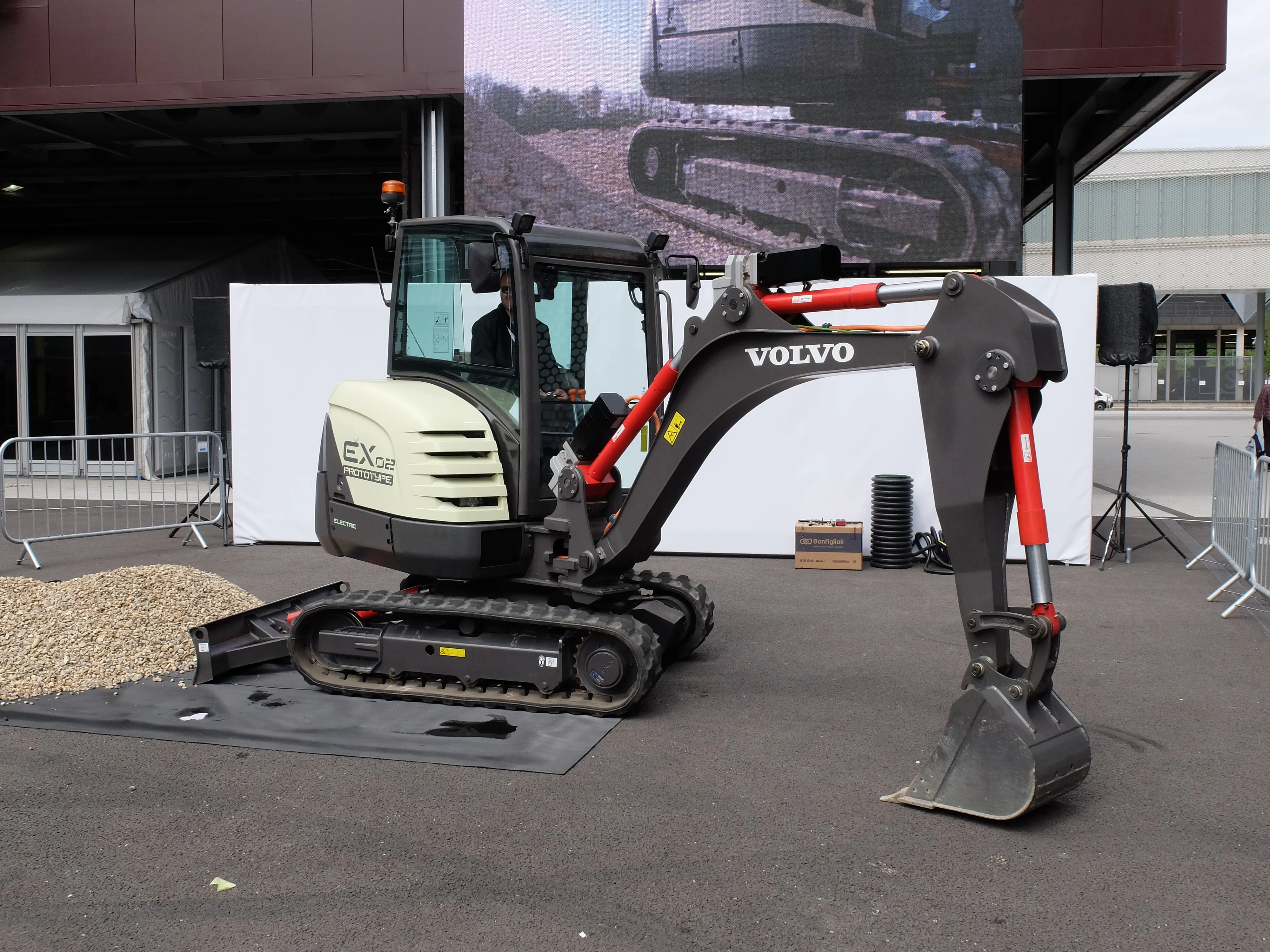Volvo CE has developed an all-electric mini excavator, which it is now demonstrating in prototype form. The machine is powered by the latest generation Li-Ion battery technology and is said to be highly efficient. Volvo CE points out that the machine is a prototype intended to test the concept and that its configuration will be likely to change during development. The 3.5tonne machine also does without conventional hydraulic circuits, marking it apart from currently available electric excavators. Lars Stenq
May 17, 2017
Read time: 3 mins

The 3.5tonne machine also does without conventional hydraulic circuits, marking it apart from currently available electric excavators. Lars Stenqvist, the
Stenqvist said that the excavator’s single battery provides sufficient power for an eight hour working shift, with energy also being regenerated from slewing or boom braking motion. He explained that a typical mini excavator will spend around 40% of its time with the engine running at idle and said, “When this machine is in idle mode there is no power consumption.”
However the small size of the motors and compact battery pack do leave sufficient space for an additional battery if necessary for more power, needed for applications such as demolition where it may be operating continuously throughout a shift. Stenqvist added that the machine also has enough space for a fuel cell stack or a diesel engine instead of an additional battery, if a hybrid mode is required.
Electric actuation in itself is not new to the construction machinery sector and in particular, RG LeTourneau was a pioneer of the concept. This technology was sidelined by advances in hydraulics but Volvo CE now thinks it has a potential for a future resurgence.
Thomas Bitter, senior vice president marketing and product portfolio at Volvo CE explained that the machine benefits from advanced battery technology developed for the automotive sector. Power densities have increased 5-10% in recent times, while the units have also been proven to work in temperatures as low as -10°C and new developments in chemistry offer further performance gains to come. He also added, “The price is decreasing faster than expected in the battery sector because of the car industry.”
The electric drive offers other benefits too and in particular the extremely low noise, just 10% of a normal machine, would allow equipment to operate in urban areas, even during night time, with minimal disturbance. He added, “Because the machine is electric it is easy to make it remote controlled.”
The firm says that the electric drive concept still has a great deal of development and testing work to be carried out before it will be ready for commercialisation. But Stenqvist did say that this concept would suit excavators weighing up to 25tonnes or so.
The electric operation also cuts the service and maintenance needs, which will present dealers with a challenge. However, battery leasing packages, a greater concentration on the attachments sector and also machine rental options could help deliver new business models for the future.






